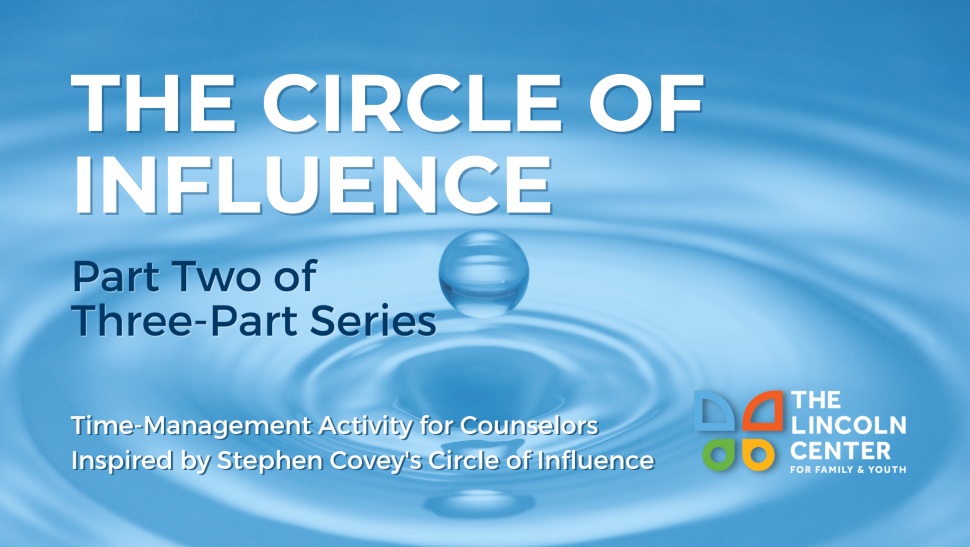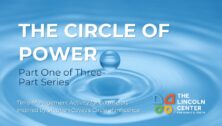The Lincoln Center: An Activity to Help Counselors Set Realistic Expectations – Pt. 2: The Circle of Influence

As a counselor, one of your greatest challenges is navigating the growing and sometimes conflicting expectations of administrators, students, and parents.
Last week, we began a 3-part series to help you categorize and prioritize what gets your attention and energy, based on the amount of control you have over the outcomes.
In Part 1, we discussed the inner circle – the Circle of Power – what you can directly control. A key to setting sustainable boundaries and enjoying a balanced life is making sure ONLY things you truly control are placed in the first circle.
Now let’s talk about the often-neglected Circle of Influence.
Circle 2: The Circle of Influence
Somewhere between “in your control” and “outside your control” are things that lie within your Circle of Influence – areas of your life where others’ decisions can be impacted positively or negatively by the communication, support, and resources that you provide or withhold.
As a counselor, your Circle of Influence can include the decisions and actions of your students, supervisors, coworkers, administrators, or family members and friends.
The people within your Circle of Influence as a counselor require your active reflection. It’s easy to see all the decisions that aren’t yours to make – but you have more influence on the people making them than you may realize.
It’s important to be aware and honest about the potential impact your communication can have on others – this can help you to be more intentional as you share information and guidance with them, and aid your ability to positively impact their decision-making process.
The Lincoln Center for Family and Youth seeks to help each client and student find meaning in their choices, appreciate their progress, and become intentional in their identified purpose.
As a counselor, you’re making the most of your Circle of Influence when you approach each opportunity to actively equip others to make the best possible choices through intentional communication, and without pressure or judgment.
Recognizing your ability to have influence, while honoring others’ power to make their own decisions, further strengthens the healthy boundaries you’ve set in your work and life.
Stay tuned for Part 3 of this series, where we will look at the third concentric circle by exploring The Circle of Concern, which is comprised of all the things in your life that may concern and have impact on you, but you have no ability to control them.
About TLC
The Lincoln Center for Family and Youth (TLC) is a social enterprise company serving the Greater Philadelphia Area.
Founded in 1970 by a behavioral health hospital, TLC is an entrepreneurial nonprofit providing innovative education, coaching, and counseling services to individuals and families, as well as grant writing and management services for school districts and universities.
TLC’s mission is to promote positive choices and cultivate meaningful connections through education, counseling, coaching, and consulting. To learn more, visit TheLincolnCenter.com
About the Author
MaryJo Burchard (Ph.D. in Organizational Leadership) is co-founder and principal of Concord Solutions, a Virginia-based consultancy firm focused on helping leaders and organizations thrive while facing major disruption. Concord Solutions offers consulting, coaching, training, research, and keynote speaking surrounding trauma-informed leadership and assessing and building change readiness, trust, and belonging.
Circle of Influence Concept
In his popular book, The 7 Habits of Highly Effective People, Stephen Covey introduced The Circle of Influence and The Circle of Concern concepts. The above exercise is a derivative of his work.
Join Our Community
Never miss a Delaware County story!
"*" indicates required fields

















![95000-1023_ACJ_BannerAd[1]](https://delco.today/wp-content/uploads/sites/3/2023/03/95000-1023_ACJ_BannerAd1.jpg)













